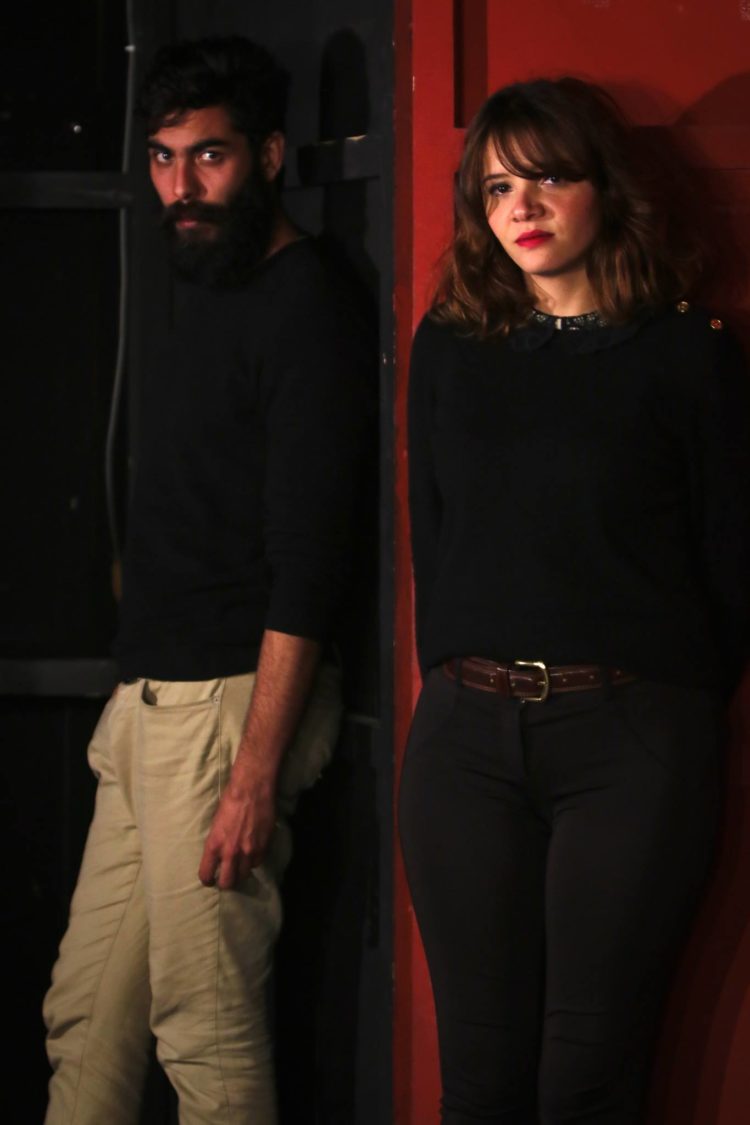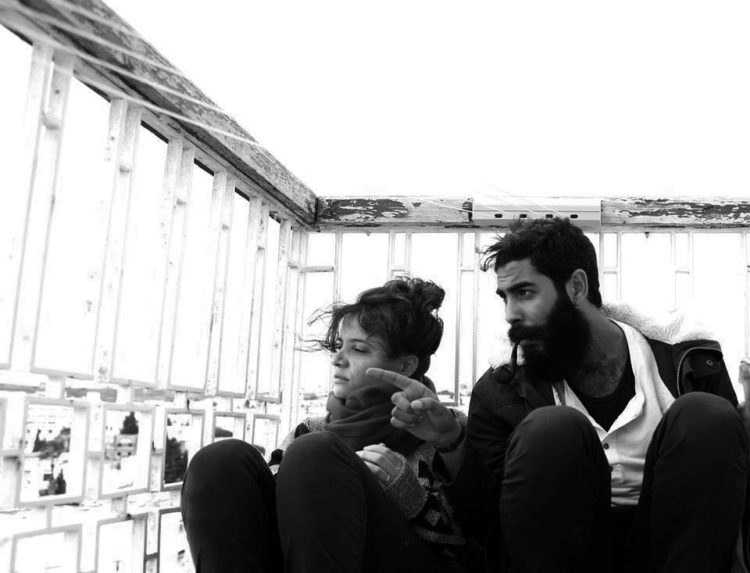‘It was vital, imperative, natural, instinctive. Perhaps we arrived at a musical universe, or perhaps we created it,’ says Ramy Zoghlemi.
He grabs his exuberant beard and funnels down it with one hand, while staring at a little espresso coffee cup on the table. Seated alongside is his collaborator, Sabrine Jenhani. Together, they are Tunisia’s folk duo Yuma.
Yuma’s music is lovely; intimate, melodic, melancholic, powerfully simple. They combine Tunisian dialect with hints of western, almost Celtic melodies. Sabrine‘s voice is fully emotive, forceful yet fragile. Ramy accompanies with deep, breathy vocals, while playing acoustic guitar.
I saw them play the week before at the Rio cinema in downtown Tunis. The place was full, and filled with an excitement that was contagious. It was thrilling to see people responding to a performance in this way. I found myself wondering why the crowd was so excited.
Sabrine and I are representing a Tunisian youth that has a great thirst for music, but also for love, hope and grace.
It takes three minutes online to realise that Yuma produce music that is highly accessible wherever you are from. A blend of local dialects and sonorous, expansive melodies, perhaps it was simply the originality of the music, its novelty in this setting, that was so exciting to everyone?
But when we meet, a week later, in a café in the Tunis centre ville, Ramy offers another clue: ‘Sabrine and I are representing a Tunisian youth that has a great thirst for music, but also for love, hope and grace’.
The primary musical vehicle for Tunisian youth culture is hip hop. Also delivered through dialect, it appears to offer mainly anger and swagger for those looking to embody the genre. Yuma offers an alternative.
Through Yuma’s music, Tunisians can share in the celebration of their language, idioms and adages, within a genre, folk, that accommodates a wider gamut of emotions. When Ramy says, ‘We have become spokespersons for a generation’ it begins to make sense.
https://www.instagram.com/p/BM_L7TRB9C5/?taken-by=yumatheduo
It has all happened very quickly for Yuma. They formed just over a year ago, in late 2015. Their break came in the summer of 2016, when they played at the Hammamet music festival, seen as Tunisia’s most important music event.
The rest is starting to become history. They are working on a second album, called Stardust. Sabrine, 30, and Ramy, 28, are gaining a national, or even international, following.
Yuma’s popularity must also be seen in the context of a Tunisian culture that, for all its liberalism vis-a-vis other Maghreb and Arab countries, remains conservative. The duo’s decision to abandon steady jobs to pursue a career in music is unusual.
Their freedom of expression is a political act in the context of Tunisian society.
For Sabrine to collaborate with a man, in an industry dominated by men, is also unconventional. For young Tunisians their courage must be inspirational.
‘To an extent we have become cultural figures. It wasn’t deliberate. It just happened because of our expressing ourselves. It was through our desire to be personally satisfied,’ says Sabrine. And here lies a final insight into the duo’s reception at the Rio cinema. Yuma are pursuing their purpose on their own terms.
They do not pursue any overt political agenda, but their freedom of expression is a political act in the context of Tunisian society. Their art is theirs. This exposure is vulnerable, and therefore connecting. I ask about the sadness I hear in their music. Sabrine responds
‘C’est moins triste que intimiste [It’s less sad than intimate].’ What matters, she later says, is ‘to be real.’ With the courage of this conviction, in their quiet way, Yuma are making big noises on Tunisia’s cultural scene.



